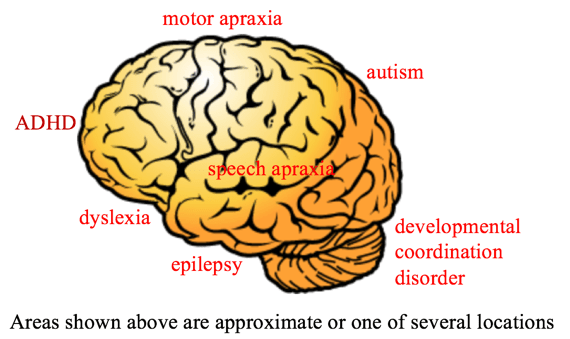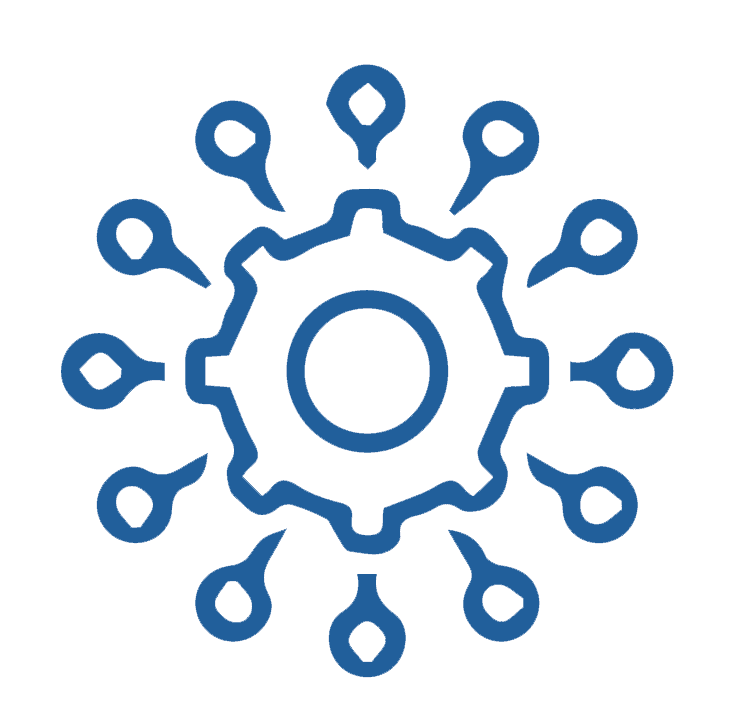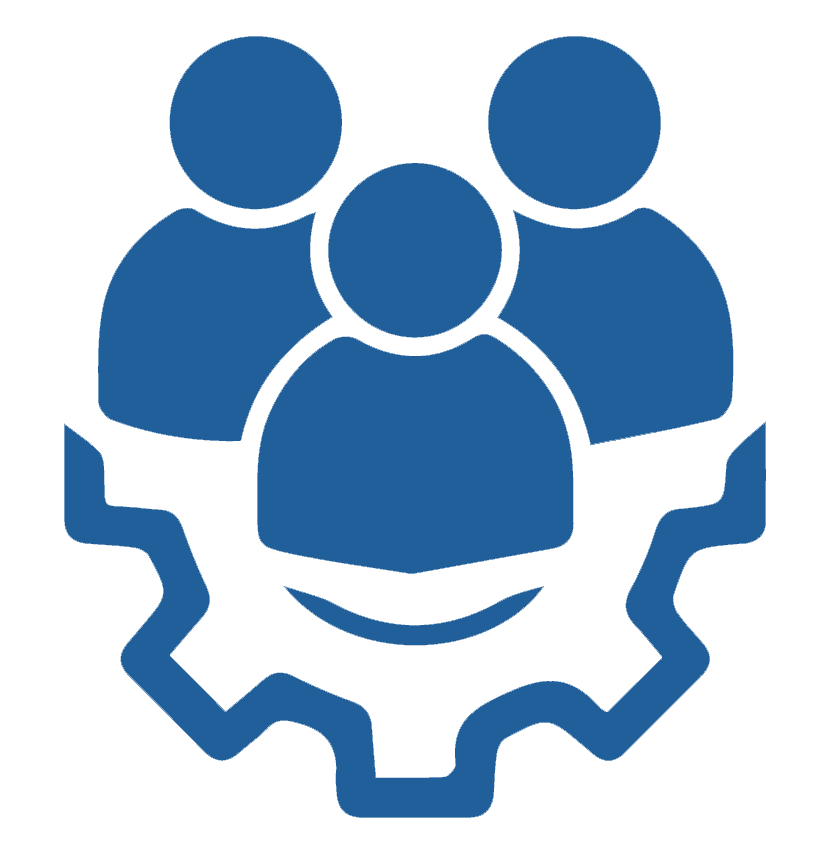$84
Neurodevelopmental disorders are also classified by onset in early life. Many are present by the time of birth. As brain development is especially important in the first few years after birth, most cases are noticed in that time span, although formal recognition and diagnosis may be years later. As brain development occurs throughout childhood, neurodevelopmental disorders can appear throughout this time frame. Conditions in which the brain is normal during development but function deteriorates later in life are classified differently, in that disease results not from a failure of development but from deterioration. Examples include Alzheimer, Parkinson, and other forms of dementia, which are classified as neurodegenerative disorders. Schizophrenia is an intermediate example, as it typically starts at the tail end of brain development in late adolescence and early adulthood, and involves both developmental and neurodegenerative properties. Another difficult-to-classify condition in adult-onset ADHD, however, in many such cases disease was present during brain development, but oftentimes neither recognized nor diagnosed.
 Neurodevelopmental disorders have high degrees of co-morbidity (overlap), in that it is common for an individual to be affected with a few or several of these conditions. Neurodevelopmental disorders also have a substantial genetic component, in that close relatives are at substantially higher risk for having one or more of these conditions. It is not uncommon for families to have several affected members suffering from different, and often multiple, neurodevelopmental disorders. Since different neurodevelopmental disorders affect different parts of the brain that have different functions, the same patient can receive many “diagnoses”. For example, the same person can have autism based on difficulty in social communication, ADHD based on difficulty in executive function, and apraxia based on difficulty with motor functions.
Neurodevelopmental disorders have high degrees of co-morbidity (overlap), in that it is common for an individual to be affected with a few or several of these conditions. Neurodevelopmental disorders also have a substantial genetic component, in that close relatives are at substantially higher risk for having one or more of these conditions. It is not uncommon for families to have several affected members suffering from different, and often multiple, neurodevelopmental disorders. Since different neurodevelopmental disorders affect different parts of the brain that have different functions, the same patient can receive many “diagnoses”. For example, the same person can have autism based on difficulty in social communication, ADHD based on difficulty in executive function, and apraxia based on difficulty with motor functions.
Neurodevelopmental disorders are very common and one of the most frequent causes of disability in people throughout the USA and world. Lifespan can be significantly reduced in people with epilepsy or severe/profound intellectual disability.
Nerve cells (neurons) are electrical and have very high energy requirements. Thus, energy metabolism is extremely important for proper brain development function. The vast majority of the energy used by all cells is produced by its mitochondria. In recent decades, mitochondrial dysfunction has been identified as an important component in the cause of neurodevelopmental disorders. In particular, autism, epilepsy, and schizophrenia each have multiple studies revealing an association with abnormal energy metabolism (mitochondrial dysfunction), although some evidence exists for such a connection of mitochondria with multiple other neurodevelopmental syndromes as well. There are other aspects of cellular function also associated with neurodevelopmental disorders, including ion channels, neurotransmission, and inflammation. However, energy metabolism appears to be common, important, and treatable in many sufferers.
Dr. Boles, one of the founders of NeuroNeeds® and the main developer of its products, has been treating neurodevelopmental disorders for over 25 years with nutrients aimed at optimizing mitochondrial energy metabolism. These nutrients are often referred to as the “mitochondrial cocktail” and include vitamins (e.g. several B vitamins, C, D, E), minerals (e.g. magnesium, zinc, selenium), antioxidants (e.g. coenzyme Q10, alpha lipoic acid), and other compounds (e.g. carnitine, creatine, arginine). While this treatment is generally successful, oftentimes greatly so, it was very difficult as multiple nutrients are critical for mitochondrial function. Additionally, most over-the-counter products are of insufficient dosage or bioavailability for several of these nutrients in order to significantly affect mitochondrial function. NeuroNeeds® has made mitochondrial therapy easy, with the addition of SpectrumNeeds® (33 active ingredients in a powder form), EnergyNeeds® (40 active ingredients in a capsule form), and QNeeds® (gel capsules containing a very-highly bioavailable form of coenzyme Q10).
There are multiple parallels between the neurodevelopmental, mood, and functional disorders. These concepts overlap greatly in that people are likely to have conditions listed in two or all three of these categories, as well as to have relatives with conditions in different categories. All three categories have several genetic risks factors in common, and oftentimes have underlying mitochondrial dysfunction. For example, autism, anxiety, and intestinal dysmotility often appear together, and all three might respond favorably to mitochondrial cocktail.

Neuro-Developmental
YOU ARE HERE










